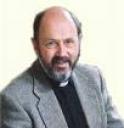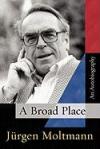Hey readers, quick question. I am familiar with logic (the discipline, of course), but I was wondering if there was an “official” informal fallacy that deals specifically with the tone with which an argument is verbally stated. Just curious.
Civic Calendar
April 2024 M T W T F S S 1 2 3 4 5 6 7 8 9 10 11 12 13 14 15 16 17 18 19 20 21 22 23 24 25 26 27 28 29 30 My Reading Habits
A Tweeter’s Progress
Tweets by marisd-
Recent Posts
Recent Comments
Larry Cracraft on New Blog to Check Out Mason Odenheimer on Book Review-Holy Scripture, a… Elizabeth M on Youth and Apologetics oretha meader on Reading Rahner & Pann… Bettina Gilmour on Reading Rahner & Pann… Diablogs
- Antecedents
- Apologetics.com
- Barthian Milieu
- Certain Doubts
- Christian Theology
- Colin Gunton Research Discussion Group
- Dare to Debate Your God
- Debunking Christianity
- Discussing Jurgen Moltmann
- Euanglion
- Generous Orthodoxy
- God as the Mystery of Theology
- Hauerwasians: Hauerwas Discussion Group
- la nouvelle theologie
- Metaphysical Frameworks
- Metaphysical Theology: Biblical Theology of Metaphysics
- Niebuhr Family Discussion
- Objectivist v. Constructivist v. Theist
- Open Theism Discussion Board
- OrthodoxWord
- Prosblogion
- Reading Through Church Dogmatics
- Reformed Epistemology Group
- ReformedCatholicity.com
- Right Reason
- Summa Philosophiae
- The Bonhoefferian
- The Normal Christian Life
- Uncommon Descent
- Wesleyan Theology
- Within the Trinity
Good Reads
- A Desperate Kind of Faithful
- biblicalia
- Cathedra Unitatis
- Deep Furrows
- delectatio Dei
- distraction economy
- In Thy Light
- Khanya
- Levellers
- Loretta’s Basement
- MattBrunk.org
- Missions and Theology
- Notes from underground
- nothing new under the sun…
- On Philosophy
- Per caritatem
- Per Crucem Ad Lucem
- rain and the rhinoceros
- Reading Yoder
- Reasonable Politics
- Schenck Thoughts
- Scholasticus
- Seeing the Form
- Shadow of Divine Things
- Slemp’s Systematic Summa Theologica
- Sophrosyne
- Soylent Green
- Sub Ratione Dei
- Text, Community, & Mission
- The Blogging Parson
- the church and postmodern culture: a conversation
- The Fire and the Rose
- Theofragen
- Theologia Viatorum
- Theology and Biblical Studies
- theotherblog
- This is Life!: Revolutions Around the Cruciform Axis
- Tolle lege, tolle lege …
- Trinitarian Life
- Trinities
- Vindicated
- Whitehall
- Without Authority
Pastors
Professors
- a time to tear down | A Time to Build Up
- Alanyzer
- Alexander R. Pruss Home Page
- Alvin Plantinga: The Analytic Theist
- basic christian beliefs
- Ben Witherington
- Beyond Necessity
- Bock’s Blog
- Crossings
- Discuss Theology
- Dr. Claude Mariottni-Professor of Old Testament
- Dr. Jim West
- Dr. Platypus
- Earliest Christian History
- Exploring Our Matrix
- Faith and Theology
- Faith Matters
- Fernando’s Desk
- Greg Boyd’s Website
- Helm’s Deep
- Historical Theology.com
- J. Ted Blakley
- Jesus Creed
- John Hick
- Keith Drury
- Leithart.com
- LeRon Shults
- Maverick Philosopher
- Michael Bird
- Mindful hack
- Out of Bounds
- Peter J. Leithart, PhD
- Pontifications
- Reasonable Faith with William Lane Craig
- Robert Jenson
- Rowan Williams Homepage
- Shored Fragments
- The Evangelical Universalist
- The Freedom Project
- The Jesus Dynasty Blog
- The Politics of the Cross
- The Scriptorium Daily
- The Totally Unofficial Walter Brueggemann Page
- Theological German/Theologisches Deutsch
- Theological Scribbles
- titusonenine
- vagabondprofessor
- William Lane Craig’s Virtual Office
Resources
- American Theological Inquiry
- Apollos.ws
- Ask Philosophers
- Australian Ejournal of Theology
- Barth Search Engine
- Bible Map Software
- Bible.Logos.com
- BibleWalks.com
- Biblical Studies Resources
- Boston Collaborative Encyclopedia of Western Theology
- Bridge to Balthasar
- Bunyan Ministries
- Byzantium: Byzantine Studies on the Internet
- Center for Barth Studies
- Center for Theology and the Natural Sciences
- Christian Classics Ethereal Library
- CS Lewis on Old Books
- Defining NT Criticisms
- Directory of Open Access Journals
- Douglas Knight
- Early Christian Writings
- Early Modern Texts
- Edward Schillebeeckx
- Fides Quaerens Internetum
- godin3persons
- Got Pure Milk?
- Graham Apologetics
- Hans Wilhelm Frei
- Hebrew 2 Hub by J. Ted Blakley
- Idolater’s Anonymous
- Internet Ancient History Sourcebook
- Internet Encyclopedia of Philosophy
- Internet Jewish History Sourcebook
- Internet Medieval Sourcebook
- Internet Modern History Sourcebook
- Jonathan Edwards Center
- Journal for Christian Theological Research
- Journal for Interdisciplinary Research on Religion and Science
- Kant on the Web
- Karl Barth Archive
- Karl Barth Institute: Homepage of Eberhard Busch
- Karl-Barth
- Leadership University
- N.T. Wright Page
- New Testament Gateway
- Newman Reader
- Nietzche Hotlinks
- Open Theism Information Site
- Orthodox Christian Information Center
- Paul Tillich
- Perseus Digital Library
- Pick the Brain
- Princeton Theological Review
- Project Gutenberg
- Project Wittenberg
- Quodlibet
- Ray Anderson
- religion online
- Soren Kierkegaard
- Stanley J. Grenz
- Synagogue Faqs
- Synoptic Gospels Primer
- The Boston Collaborative Encyclopedia of Modern Western Theology
- The Centre of Theology and Philosophy
- The Classics Library
- The Context Group
- THE DETERMINISM AND FREEDOM PHILOSOPHY WEBSITE
- The Dooyeweerd Pages
- The Journal of Scriptural Reasoning
- The Journal of Textual Reasoning
- The Logic Museum
- The Madaba Mosaic Map
- The Orthodox Church in America
- The Other Journal
- The Project on Lived Theology
- The Tertullian Project
- The Victorian Web
- Theistic Philosophers on the Web
- Theological Dictionary
- Theology Blogs
- Theopedia
- Theophenomenon
- Virtual Library of Christian Philosophy
- Virtual Religion
- Wesley Center for Applied Theology
- Wolfhart Pannenberg
Societies
Trainees
- aaron ghiloni
- Abided Knowing
- Beginners Mind
- Believing Jesus
- Brian Hamilton
- Chrisendom
- clavi non defixi
- Der Evangelische Theologe
- disruptive grace
- drulogion
- Energetic Procession
- Evangelical Catholicism
- Faith and Place
- Feminary
- Fides Quaerens Intellectum
- God in a Shrinking Universe
- Inhabitatio Dei
- Intellectus Fidei
- Is There a Meaning in this Blog?
- Modern Acropolis
- Nihil Fit
- Novum Testamentum Blog
- Philosophical Orthodoxy
- REFLECTIONS
- renewed theology
- Sign on the Window
- Speaking Freely
- The Gordian Knott
- Zoommatics
Meta





















